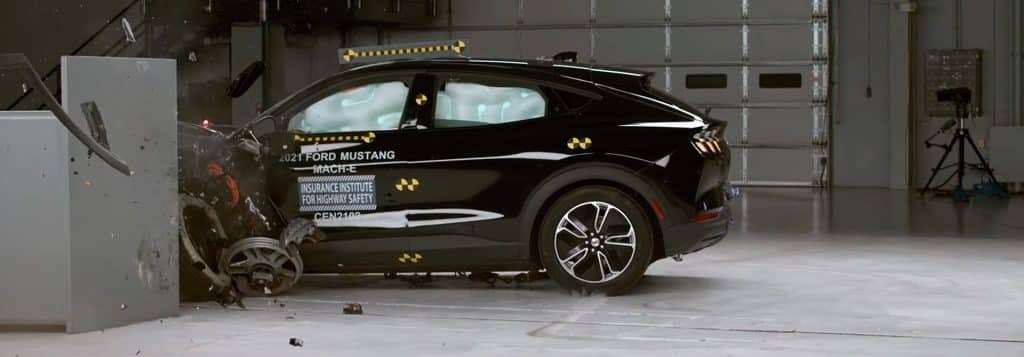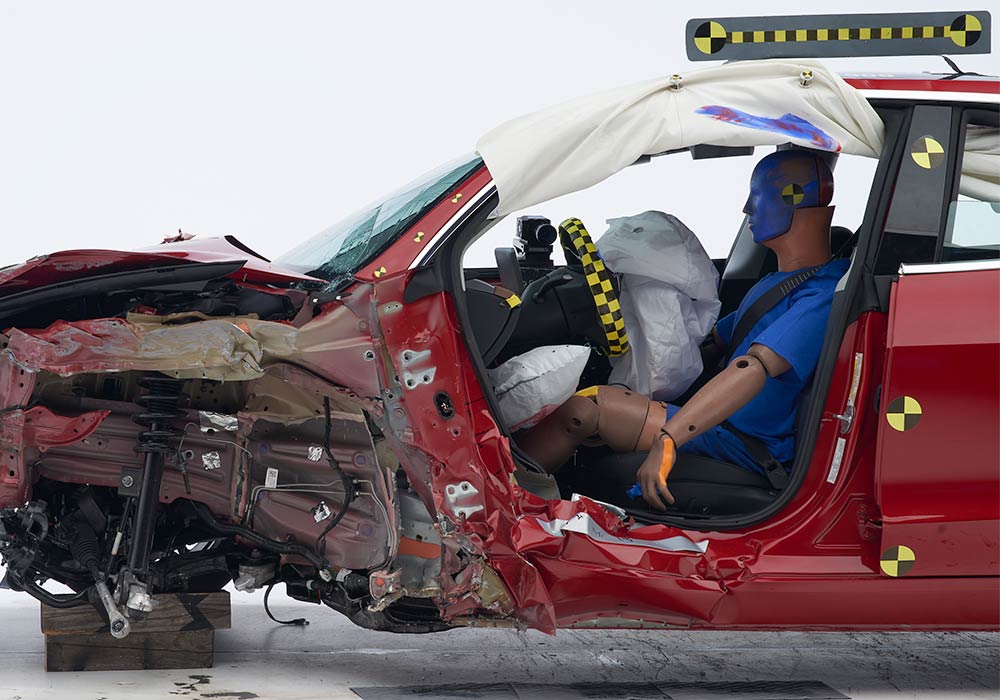An analysis of insurance data in the United States has shown that injury claims are notably less common among all-electric vehicles like the Tesla Model 3 and its peers. The findings were shared by the Insurance Institute for Highway Safety (IIHS) in a recent report, which followed the release of its safety ratings for the 2021 Volvo XC40 Recharge and the Ford Mustang Mach-E.
The XC40 Recharge and the Mustang Mach-E were able to secure high rankings in the IIHS’ stringent safety tests, with the former receiving a Top Safety Pick+ award and the latter receiving a lower but still impressive Top Safety Pick rating. Other all-electric vehicles, most notably the Tesla Model 3, the Audi e-tron, and the Audi e-tron Sportback, have qualified for the 2021 Top Safety Pick+ award.

Interestingly enough, the release of the XC40 Recharge and Mach-E’s stay ratings coincided with a recent study of insurance losses for electric vehicles by the IIHS-affiliated Highway Loss Data Institute. The study looked at electric and conventional versions of nine vehicles produced from 2011 and 2019, and it examined collision, property damage liability, and injury claims.
As per the study’s findings, the rates of injury claims related to drivers and passengers of electric vehicles were over 40% lower compared to their internal combustion-powered counterparts over 2011-2019. The IIHS notes that these results were quite similar to the findings of an earlier study from the Highway Loss Data Institute (HLDI) that focused on hybrid cars, which pointed out that the lower injury rates may be due to the weight of the vehicles’ batteries.
As per the HLDI, the large batteries used in hybrids make vehicles substantially heavier than conventional cars. Occupants of heavier vehicles are exposed to lower forces in multi-vehicle crashes. Matt Moore, HLDI vice president, explained these findings in a statement. “Weight is a big factor. Hybrids on average are 10% heavier than their standard counterparts. This extra mass gives them an advantage in crashes that their conventional twins don’t have,” he said.

This weight advantage is even more notable in all-electric cars like the Tesla Model 3, on account of their substantially larger battery packs. This was true for the XC40 Recharge, which features a curb weight of 4,787 lbs, which is significantly heavier than the 3,811 lbs of its combustion-powered counterpart. Even the Mach-E, which is an all-electric model, is quite hefty at 4,516 lbs.
IIHS President David Harkey is quite optimistic about the study’s findings. In a statement, he noted that the study further proves that all-electric cars are as safe or even safer than conventional vehicles. This means that a transition to sustainable vehicles would likely not require as many compromises on the part of consumers. “It’s fantastic to see more proof that these vehicles are as safe as or safer than gasoline- and diesel-powered cars. We can now say with confidence that making the U.S. fleet more environmentally friendly doesn’t require any compromises in terms of safety,” he said.





